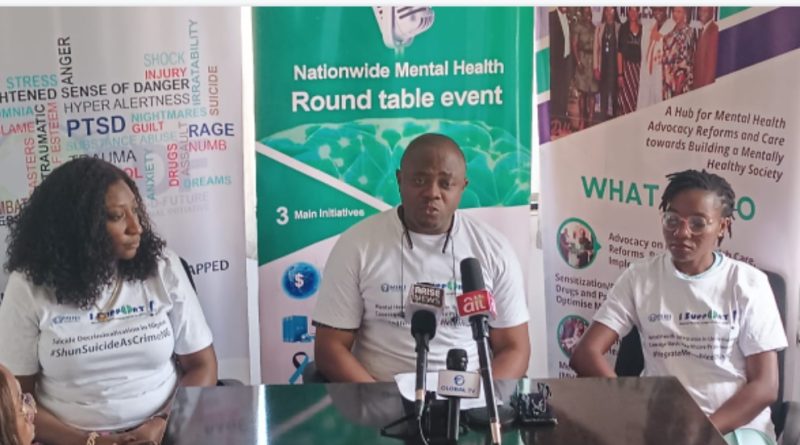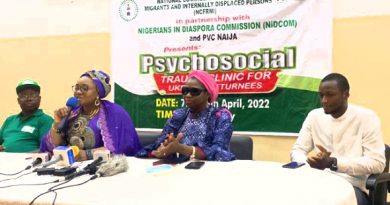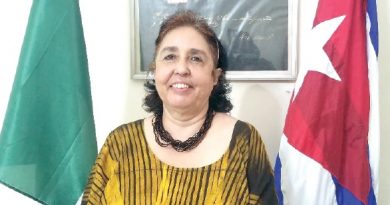Advocates urge FGN to include mental health in NHIA Guidelines and Universal Health Coverage for accessible, affordable care
State Correspondent
Mental health is a crucial aspect of human well-being that affects millions of Nigerians. Yet, it is often neglected and stigmatized in our society. This is why the Citizens Advocacy Group on Mental Health Nigeria is calling on the National Health Insurance Authority (NHIA) to include mental health in its guidelines, ensuring that Nigerians have access to affordable and quality mental health care. In this article, we will explain why this is important and how it can benefit individuals, families, communities, and the nation as a whole.
According to the World Health Organization (WHO), mental health is “a state of well-being in which an individual realizes his or her own abilities, can cope with the normal stresses of life, can work productively, and is able to make a contribution to his or her community”. However, many Nigerians are unable to achieve this state of well-being due to various mental health conditions, such as depression, anxiety, bipolar disorder, schizophrenia, and substance abuse.
The WHO estimates that more than 60 million Nigerians suffer from various mental illnesses and that only about 10 percent of them are able to access appropriate care. This is partly due to the lack of funding, infrastructure, personnel, and policies for mental health care in Nigeria. The UHC2023 agenda, which aims to ensure universal health coverage for all Nigerians, provides an opportunity to address these gaps and challenges. One of the key components of the UHC2023 agenda is the Basic Health Care Provision Fund (BHCPF), which is a statutory fund that provides a minimum package of health services to all Nigerians, especially the poor and vulnerable. However, the current NHIA guidelines, which regulate the implementation of the BHCPF, do not include mental health as part of the minimum package. 
There are many reasons why including mental health in the NHIA guidelines is essential for promoting the well-being and welfare of the Nigerian people. First, mental health is closely linked to physical health, as many mental health conditions can affect or be affected by chronic diseases, such as diabetes, hypertension, TB and HIV/AIDS. Neglecting mental health can adversely affect the overall health outcomes and quality of life of individuals and communities. Second, mental health is also linked to economic development, as many mental health conditions can impair the productivity, employability, and income of individuals and families. The WHO estimates that the global economic loss due to mental disorders is about 2.5 trillion US dollars per year and that this figure will increase to 6 trillion US dollars by 2030. Including mental health in the NHIA guidelines can help reduce the economic burden and improve the human capital of Nigeria. Third, mental health is also a human right, as recognized by the United Nations Convention on the Rights of Persons with Disabilities (CRPD), which Nigeria ratified in 2007. The CRPD states that persons with disabilities, including those with mental impairments, have the right to the highest attainable standard of health without discrimination. Including mental health in the NHIA guidelines can help ensure that this right is respected and protected in Nigeria. Some of the possible objections or challenges that might arise from including mental health in the NHIA guidelines are the lack of awareness, stigma, and cultural barriers that surround mental health issues in Nigeria. However, these can be overcome by increasing the education, sensitization, and advocacy on mental health among the public, policymakers, and health care providers. Another challenge might be the cost and feasibility of providing mental health services to all Nigerians, especially in rural and remote areas. However, this can be addressed by integrating mental health services with primary health care, which is the main strategy of the BHCPF. This would ensure a holistic approach to health care delivery, as well as improve the accessibility, affordability, and quality of mental health care in Nigeria.
In conclusion, we believe that including mental health in the NHIA guidelines is a necessary and urgent step to improve the well-being and welfare of the Nigerian people. Mental health is not a luxury, but a necessity. It is not a taboo, but a topic. It is not a problem, but a solution. By including mental health in the NHIA guidelines, we can create a Nigeria where mental health is given the same importance as physical health, where mental health services are available and affordable for all, and where mental health stigma and discrimination are eliminated. We urge the NHIA Director, Dr. Kelechi Ohiri, under the leadership of the Coordinating Minister of Health and Social Welfare, Prof. Mohammed Ali Pate, to heed our call and make this happen. We also urge all Nigerians to join us in this advocacy and support our cause. Together, we can make a difference. Together, we can make Nigeria a mentally healthy nation. No health without mental health.
(MHEI Media)




